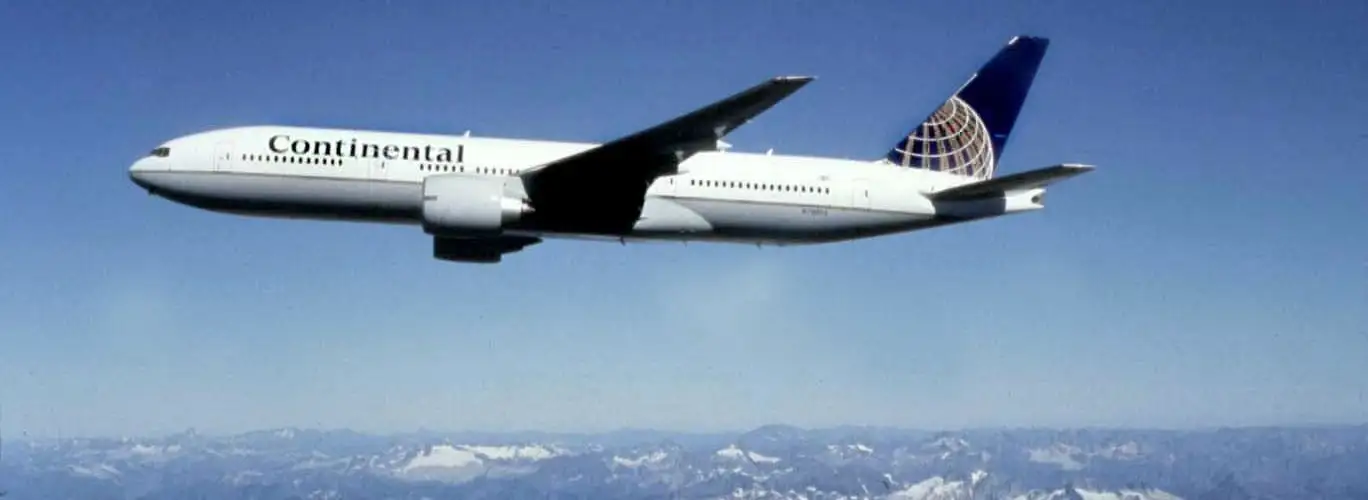
Ben Mutzabaugh at Today in the Sky has been posting parts of an extensive interview he did with Jim Compton, Continental’s executive vice president and chief marketing officer. The segments have been insightful and you should check them all out, but today’s, which touched on bag fees, struck me as being of particular interest to Today in Travel readers.
At one point, Mutzabaugh asks, “Continental was one of the last to add checked-bag fees. What can you tell us?”
To which Compton replies, “We’ve watched the data. [At first,] we didn’t match and we had the same fare. And we didn’t see any share-shift. And so passengers stayed with carriers that had the same fares as us … but also a bag fee. And so that’s one piece—we didn’t see the share shift.
And yet … in 2010 bag fees with be worth over $350 million to us. [That’s] well over the $270 million [in fees] in 2009, a year where we lost close to $300 million. So, if you took that away, it would make that loss so much bigger. [That] is not sustainable and we need to be sustainable to provide air service.
The second thing … There’s really two questions: Why not just raise fares? I view our market as a market-based business, not a cost-based business. And so our prices reflect market conditions. So, I think, the ability to raise fares is because demand and capacity are in line. When capacity is out of line with demand – more capacity than demand—it’s very difficult to raise fares. It’s a very price-competitive business.
An example: We didn’t see share-shift with bag fees. But we have seen times where we do a fare increase—and it’s not matched—[and] we see bookings change. We actually see bookings not keep at the pace they were before the fare increase. So if we pull that fare increase because [competitors] don’t match, we see bookings go back to kind of a normal level. So pricing is very much a function of the market conditions that are out there.
As capacity meets demand, and it’s in line, two things begin to happen. You have the ability to manage the mix of passengers—more business vs. leisure. And then there may be opportunities to raise fares because there’s just more demand than the capacity.
When you talk about bag fees or some of the ancillary things … we do day-of-departure upgrades to first class that generated $25 million for us in 2009. [That goes back to] this idea that we’ve talked about previously about extra legroom and the potential revenue that might generate—because you’ve satisfied the customer at the fare level, now you’re able to offer the customer things they may value and be willing to pay for.
The other way to think about it is that if you don’t want to check a bag and someone else [does,] why should you subsidize the whole system—the infrastructure—of carrying bags? And so fees, merchandising, is all about giving customers choice to pick the things that they want and that they’re willing to pay for to meet the services that they’re looking for.
The challenge has been you have to unbundle certain things. And again it gets back to the market conditions, the pricing. To me you have to separate the two. The prices are a reflection of the market conditions. The ancillary revenue—the fees and the merchandising—is more about giving people choices to pick services they want to choose and are willing to pay for.”
Well, that’s about as plainspoken and logical a justification as you’re likely to get for bag fees. Compton answers a few more bag-fee questions, so head over to the full interview to hear more.
My question is, does this change the way you feel about them? Bag fees are universally deplored, so perhaps nothing could change the collective opinion on them, but I have to admit I can accept most of the reasoning Compton provides. Let me know what you think!
(4/2/10 Editor’s Note: The title of this post was edited to reflect the correct title of Mr. Compton.)
We hand-pick everything we recommend and select items through testing and reviews. Some products are sent to us free of charge with no incentive to offer a favorable review. We offer our unbiased opinions and do not accept compensation to review products. All items are in stock and prices are accurate at the time of publication. If you buy something through our links, we may earn a commission.
Related
Top Fares From
Today's Top Travel Deals
Brought to you by ShermansTravel
Greece: 9-Night Vacation, Incl. Meteora &...
Exoticca
 vacation
$2099+
vacation
$2099+
7- to 28-Night Mediterranean Cruises w/Onboard...
Holland America Line
 cruise
$1399+
cruise
$1399+
Ohio: Daily Car Rentals from Cincinnati
85OFF.com
 Car Rental
$19+
Car Rental
$19+



